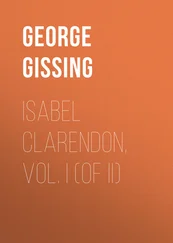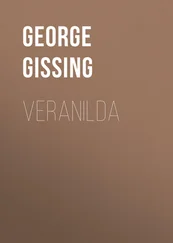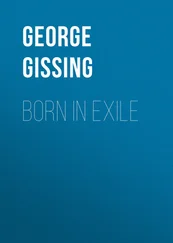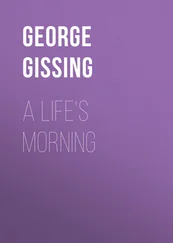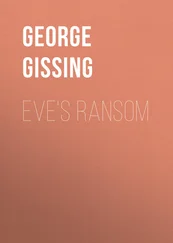George Gissing - Thyrza
Здесь есть возможность читать онлайн «George Gissing - Thyrza» — ознакомительный отрывок электронной книги совершенно бесплатно, а после прочтения отрывка купить полную версию. В некоторых случаях можно слушать аудио, скачать через торрент в формате fb2 и присутствует краткое содержание. Жанр: foreign_prose, literature_19, foreign_antique, на английском языке. Описание произведения, (предисловие) а так же отзывы посетителей доступны на портале библиотеки ЛибКат.
- Название:Thyrza
- Автор:
- Жанр:
- Год:неизвестен
- ISBN:нет данных
- Рейтинг книги:3 / 5. Голосов: 1
-
Избранное:Добавить в избранное
- Отзывы:
-
Ваша оценка:
- 60
- 1
- 2
- 3
- 4
- 5
Thyrza: краткое содержание, описание и аннотация
Предлагаем к чтению аннотацию, описание, краткое содержание или предисловие (зависит от того, что написал сам автор книги «Thyrza»). Если вы не нашли необходимую информацию о книге — напишите в комментариях, мы постараемся отыскать её.
Thyrza — читать онлайн ознакомительный отрывок
Ниже представлен текст книги, разбитый по страницам. Система сохранения места последней прочитанной страницы, позволяет с удобством читать онлайн бесплатно книгу «Thyrza», без необходимости каждый раз заново искать на чём Вы остановились. Поставьте закладку, и сможете в любой момент перейти на страницу, на которой закончили чтение.
Интервал:
Закладка:
'Wouldn't it be an excellent thing if one could establish a lending library in Lambeth?'
Grail might have excusably replied that it would be a yet more excellent thing if those disposed to use such an institution had time granted them to do so; but with the young man's keen look fixed upon him, he had other thoughts.
'It would be a great thing!' he replied, with subdued feeling. He seldom allowed his stronger emotions to find high utterance; that moderated voice was symbol of the suppression to which his life had trained itself.
'A free library,' Egremont went on, 'with a good reading-room.'
It was an extension of his scheme, and delighted him with its prospect of possibilities. It would be preparing the ground upon which he and his adherents might subsequently work. Could be undertake to found a library at his own expense? It was not beyond his means, at all events a beginning on a moderate scale. His eyes sparkled, as they always did when a thought burst blossom-like within him.
'Mr. Grail, I have a mind to try if I can't work on that idea.'
Gilbert was stirred. This interchange of words had strengthened his personal liking for Egremont, and his own idealism took fire from that of the other. He regarded the young man with admiration and with noble envy. To be able to devise such things and straightway say 'It shall be done!' How blest beyond all utterance was the man to whom fortune had given such power! He reverenced Egremont profoundly. It was the man's nature to worship, to bend with singleness of heart before whatsoever seemed to him high and beautiful.
'Yes,' the latter continued, 'I will think it out. We might begin with a moderate supply of books; we might find some building that would do at first; a real library could be built when the people had begun to appreciate what was offered them. Better, no doubt, if they would tax themselves for the purpose, but they have burdens enough.'
'They won't give a farthing towards a library,' said Grail, 'until they know its value; and that they can't do until they have learnt it from books.'
'True. We'll break the circle.'
He pondered again, then added cheerfully:
'I say we . I mean you and the others who come to my lecture. I want, if possible, to make this class permanent, to make it the beginning of a society for purposes I have in my mind. I must tell you something of this, for I know you will feel with me, Mr. Grail.'
The reply was a look of quiet trust. Egremont had not thought to get so far as this to-night, but Grail's personality wrought upon him, even as his on Grail. He felt a desire to open his mind, as he had done that evening in the garden by Ullswater. This man was of those whom he would benefit, but, if he mistook not, far unlike the crowd; Grail could understand as few of his class could be expected to.
'To form a society, a club, let us say. Not at all like the ordinary clubs. There are plenty of places where men can meet to talk about what ought to be done for the working class; my idea is to bring the working class to talk of what it can do for itself. And not how it can claim its material rights, how to get better wages, shorter hours, more decent homes. With all those demands I sympathise as thoroughly as any man; but those things are coming, and it seems to me that it's time to ask what working men are going to do with such advantages when they've got them. Now, my hope is to get a few men to see—what you, I know, see clearly enough—that life, to be worthy of the name, must be first and foremost concerned with the things of the heart and mind. Yet everything in our time favours the opposite. The struggle for existence is so hard that we grow more and more material: the tendency is to regard it as the end of life to make money. If there's time to think of higher things, well and good; if not, it doesn't matter much. Well, we have to earn money; it is a necessary evil; but let us think as little about it as we may. Our social state, in short, has converted the means of life into its end.'
He paused, and Gilbert looked hearty agreement.
'That puts into a sentence,' he said, 'what I have thought through many an hour of work.'
'Well, now, we know there's no lack of schemes for reforming society. Most of them seek to change its spirit by change of institutions. But surely it is plain enough that reform of institutions can only come as the natural result of a change in men's minds. Those who preach revolution to the disinherited masses give no thought to this. It's a hard and a bad thing to live under an oppressive system; don't think that I speak lightly of the miseries which must drive many a man to frenzy, till he heeds nothing so long as the present curse is attacked. I know perfectly well that for thousands of the poorest there is no possibility of a life guided by thought and feeling of a higher kind until they are lifted out of the mire. But if one faces the question with a grave purpose of doing good that will endure, practical considerations must outweigh one's anger. There is no way of lifting those poor people out of the mire; if their children's children tread on firm ground it will be the most we can hope for. But there is a class of working people that can and should aim at a state of mind far above that which now contents them. It is my view that our only hope of social progress lies in the possibility of this class being stirred to effort. The tendency of their present education—a misapplication of the word—must be counteracted. They must be taught to value supremely quite other attainments than those which help them to earn higher wages. Well, there is my thought. I wish to communicate it to men who have a care for more than food and clothing, and who will exert themselves to influence those about them.'
Grail gazed at the fire; the earnest words wrought in him.
'If that were possible!' he murmured.
'Tell me,' the other resumed, quickly, 'how many of the serious people whom you know in Lambeth ever go to a place of worship?'
Gilbert turned his eyes inquiringly, suspiciously. Was Egremont about to preach a pietistic revival?
'I have very few acquaintances,' he answered, 'but I know that religion has no hold upon intelligent working men in London.'
'That is the admission I wanted. For good or for evil, it has passed; no one will ever restore it. And yet it is a religious spirit that we must seek to revive. Dogma will no longer help us. Pure love of moral and intellectual beauty must take its place.'
Gilbert smiled at a thought which came to him.
'The working man's Bible,' he said, 'is his Sunday newspaper.'
'And what does he get out of it? The newspaper is the very voice of all that is worst in our civilisation. If ever there is in one column a pretence of higher teaching, it is made laughable by the base tendency of all the rest. The newspaper has supplanted the book; every gross-minded scribbler who gets a square inch of space in the morning journal has a more respectful hearing than Shakespeare. These writers are tradesmen, and with all their power they cry up the spirit of trade. Till the influence of the newspaper declines—the newspaper as we now know it—our state will grow worse.
Grail was silent. Egremont had worked himself to a fervour which showed itself in his unsteady hands and tremulous lips.
'I had not meant to speak of this yet,' he continued. 'I hoped to surround myself with a few friends who would gradually get to know my views, and perhaps think they were worth something. I have obeyed an impulse in opening my mind to you; I feel that you think with me. Will you join me as a friend, and work on with me for the founding of such a society as I have described?'
'I will, Mr. Egremont,' was the clear-voiced answer.
Walter put forth his hand, and it was grasped firmly. In this moment he was equal to his ambition, unwavering, exalted, the pure idealist. Grail, too, forgot his private troubles, and tasted the strong air of the heights which it is granted us so seldom and for so brief a season to tread. There was almost colour in his cheeks, and his deep-set eyes had a light as of dawn.
Читать дальшеИнтервал:
Закладка:
Похожие книги на «Thyrza»
Представляем Вашему вниманию похожие книги на «Thyrza» списком для выбора. Мы отобрали схожую по названию и смыслу литературу в надежде предоставить читателям больше вариантов отыскать новые, интересные, ещё непрочитанные произведения.
Обсуждение, отзывы о книге «Thyrza» и просто собственные мнения читателей. Оставьте ваши комментарии, напишите, что Вы думаете о произведении, его смысле или главных героях. Укажите что конкретно понравилось, а что нет, и почему Вы так считаете.


